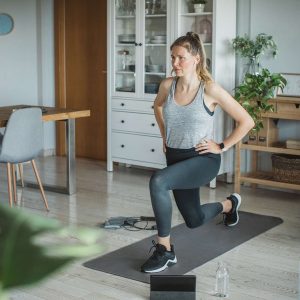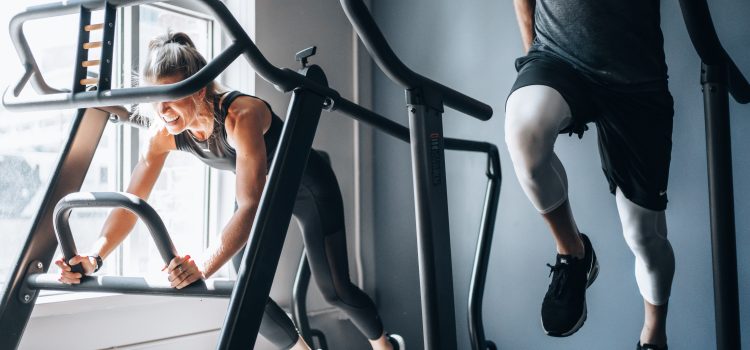
Fitness trackers have evolved from basic pedometers to sophisticated gadgets that monitor a wide range of health metrics. Choosing the right one can be overwhelming given the myriad options available in the market. This article will guide you through the key features to consider, compare top models, and provide insights to help you find the perfect fitness tracker for your needs.
Fitness trackers, also known as activity trackers, are wearable devices designed to monitor physical activity and health metrics. They help users keep track of their fitness goals, sleep patterns, and overall well-being. With advancements in technology, these devices now offer a plethora of features, making it crucial to choose one that aligns with your specific needs and preferences.
Key Features to Consider

- Activity Tracking
Most fitness trackers monitor steps, distance, and calories burned. More advanced models also track specific exercises like running, cycling, and swimming. Look for trackers that offer accurate and detailed activity tracking, particularly if you have specific fitness goals or engage in diverse physical activities.
- Heart Rate Monitoring
Continuous heart rate monitoring can provide valuable insights into your cardiovascular health and exercise intensity. It’s particularly useful for those looking to optimize workouts, manage stress, or monitor their heart health. Some trackers offer advanced features like heart rate variability and stress level analysis.
- Sleep Tracking
Sleep tracking features help users understand their sleep patterns and improve sleep quality. Look for trackers that offer detailed sleep analysis, including sleep stages (light, deep, REM) and sleep duration. This can be beneficial for those who want to enhance their overall health and well-being.
- GPS Functionality
Built-in GPS allows you to track outdoor activities like running, cycling, and hiking without needing to carry a phone. This feature is especially useful for athletes and outdoor enthusiasts who need accurate location data and route mapping.
- Battery Life
Battery life varies significantly among fitness trackers. Some devices last only a day or two, while others can last up to a week or more. Consider how frequently you are willing to charge your device and choose one that fits your lifestyle.
- Smartphone Integration
Fitness trackers often sync with smartphone apps to provide detailed insights and analysis. Compatibility with iOS and Android devices is crucial. Additionally, some trackers offer smart notifications, such as calls, messages, and app alerts, adding convenience to your daily routine.
- Design and Comfort
The design and comfort of a fitness tracker are essential, especially if you plan to wear it all day and night. Consider factors like size, weight, strap material, and style. A tracker that is comfortable and suits your personal style will encourage consistent use.
Top Fitness Trackers Comparison
To help you make an informed decision, we’ve compared some of the top fitness trackers on the market based on key features.
Analysis Table
| Feature | Fitbit Charge 5 | Garmin Vivosmart 5 | Apple Watch Series 8 | Samsung Galaxy Watch 6 |
| Activity Tracking | Steps, distance, calories, exercises | Steps, distance, calories, exercises | Comprehensive activity tracking, specific workouts | Steps, distance, calories, exercises |
| Heart Rate Monitoring | Continuous, advanced metrics | Continuous, basic metrics | Continuous, advanced metrics | Continuous, advanced metrics |
| Sleep Tracking | Sleep stages, sleep score | Sleep stages, sleep duration | Sleep stages, sleep trends | Sleep stages, sleep analysis |
| GPS Functionality | Built-in GPS | No GPS | Built-in GPS | Built-in GPS |
| Battery Life | Up to 7 days | Up to 7 days | Up to 18 hours | Up to 40 hours |
| Smartphone Integration | iOS and Android | iOS and Android | iOS only | Android and iOS |
| Design and Comfort | Slim, lightweight | Slim, discreet | Larger, customizable bands | Stylish, customizable bands |
Comparative Table
| Criteria | Fitbit Charge 5 | Garmin Vivosmart 5 | Apple Watch Series 8 | Samsung Galaxy Watch 6 |
| Best for | Comprehensive health tracking | Basic activity and sleep tracking | Advanced health and fitness tracking | Versatile smartwatch with fitness features |
| Ideal User | Users seeking detailed health insights | Budget-conscious users with basic needs | Users seeking advanced features and app integration | Users wanting a balance of fitness and smartwatch features |
| Price Range | Mid-range | Budget-friendly | High-end | Mid to high-end |
Choosing the Right Fitness Tracker for You
When selecting a fitness tracker, consider the following factors:
- Budget: Determine how much you are willing to spend. There are options available across various price ranges, from budget-friendly models to high-end devices.
- Fitness Goals: Identify your fitness goals. If you are looking for advanced metrics and comprehensive tracking, opt for devices like the Apple Watch Series 8. For basic activity tracking, the Garmin Vivosmart 5 might suffice.
- Lifestyle: Consider your daily routine and how a tracker will fit into it. If you want a device with extensive smart features, the Samsung Galaxy Watch 6 could be a good choice.
- Compatibility: Ensure that the fitness tracker you choose is compatible with your smartphone’s operating system to make the most of its features.
- Comfort and Design: Choose a tracker that fits comfortably and matches your style, especially if you plan to wear it all day and night.
Conclusion
Fitness trackers can be invaluable tools for monitoring and improving your health and fitness. By understanding the key features and comparing top models, you can find a tracker that best suits your needs and lifestyle. Whether you’re a casual user or a fitness enthusiast, there’s a fitness tracker out there that’s perfect for you. Make sure to consider your personal preferences and requirements to make an informed decision and get the most out of your fitness tracking experience.









